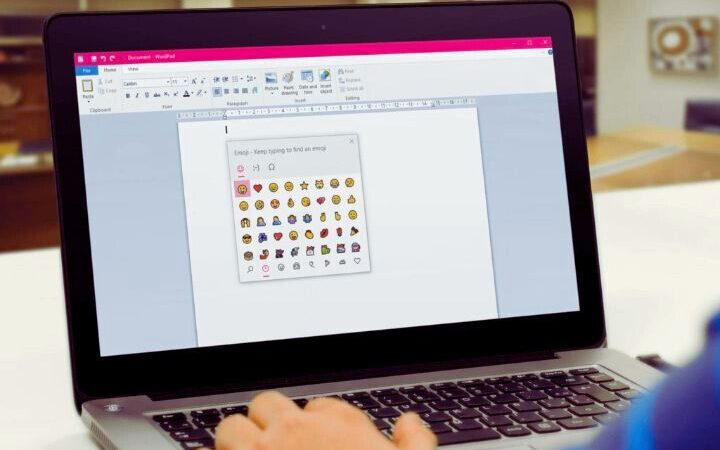Laptop For Programming Buyer’s Guide

Laptop For Programming Buyer’s Guide : We’ve worked on many laptop reviews and buying guides here , but the best laptops for programming occupy a unique niche. They don’t need the basic features we’ve highlighted in our guide to the best gaming laptops for 2022, but the basics of shopping apply to them.
The fact that the needs of each encoder will be different further complicates the search for the best laptop for programming in 2022. The languages you use, the nature of your projects, and your level of experience are all going to have a different effect on what are considered the best laptops for programming for specific users. With that in mind, there are universal features and specifications to consider when coding, and we can help you understand them so you can find a laptop for programming that meets your current needs and is ready to evolve with you in the future.
If you’re feeling confused by the specs on our review list or just want to learn more about what the best laptops for programming will be in 2022, keep reading to get the tips you need. After addressing the main specs and features, we will answer some of the most frequently asked questions by users.
Table of Contents
CPU
The central processor performs all calculations for your computer. And while good processing power is arguably the most important consideration for most laptops, it’s especially important when searching for the best laptop for programming. For most coding needs, we consider Intel’s Core i5 to be the middle of the road. This quad-core processor will be powerful enough to provide decent performance for most programming tasks.
If you do mostly web design or are looking for an entry-level laptop for programming, an i3 will probably be suitable, and we recommend an Intel Core i7 processor (preferably an eighth-generation Intel Core i7), if you use your programming skills for serious game development. The processor you choose will have a major effect on your speed and performance, and it’s usually not viable to replace. So this is the specification you need to pay the most attention to when looking for a laptop for coding, regardless of the languages you write in.
Creating a central processor is also important. The eighth generation of Intel chips is a nice seismic iteration compared to previous generations. Investing in an eighth-generation quad-core processor from Intel can therefore allow you to achieve ultra-fast performance in all your programming and coding applications.
Memory
Our main goal, when we are looking for the best laptop for programming, is to maximize the speed and performance of your laptop itself and the applications you are most likely to use. That’s why a laptop’s memory or RAM is so important for programming. When applications need to store data that needs to be easily accessible or save rules that are not often references, they use memory. And good RAM performance can have a massive effect on your machine’s speed.
We recommend that the focal point of memory coverage for programming or development be approximately 8 GB of RAM. 4GB of RAM is a decent amount of coverage for lightweight coding and for those still learning the basics of programming, but you’ll want to increase it sooner or later. 16GB of RAM will be the best if you find yourself juggling multiple programs at once or working in resource-intensive software like a game development engine. Fortunately, RAM is usually fairly easy to replace or upgrade, and many laptops come with easy-to-access compartments that allow memory to be upgraded in a plug-and-play way.
Operating System
The operating system on which a laptop runs will actually be one of the most important factors to consider when looking for a machine for programming. After all, the operating system will be where you spend most of your development time. An interface that feels comfortable to you will be incredibly important, but the same goes for software and features that are built into a given operating system. They can vary greatly, so it’s important to carefully consider the pros and cons of each of them.
That said, it’s just important that you take the time to know the software that each platform supports in order to find the one that fits your sensitivity. As a programmer, chances are you’ll spend a lot more time designing your code and fixing bugs than writing code. So it’s crucial to have interfaces that you’re comfortable with when looking for the best laptop for programming.
Finally, if you plan to develop a specific operating system rather than a cross-platform system, it is best to do so with a laptop that uses that operating system. If your development is intended to be ported to several different formats, it is better to choose the operating system with which you are most comfortable.
Linux
Linux is our favorite operating system for coding, but we can recognize that being comfortable with Linux can involve a pretty steep learning curve, especially for users who are still getting used to their laptop. But Linux is arguably the most flexible operating system you’ll find. Linux is available in countless distributions, each with its own peculiarities and characteristics, and the open source nature gives you the ability to modify the interface to suit your needs.
Linux is also the lightest operating system out there, making it ideal if you’re looking for a portable solution. You can simply download an installation of Linux to a flash hard drive and insert it if necessary. It’s a great choice if you want to use Linux for programming but keep your software and daily profiles accessible via a Windows or MacOS distribution directly on your laptop.
Windows
Windows 10 Home is the version of Windows that is going to appear in virtually every modern laptop for programming, and it’s a very good choice for programming and development. On the one hand, the wide adoption and open development systems of Windows means that any software you develop for them is going to have a wider audience than if you were developing on Linux or Windows. So, for programming and coding across multiple platforms, it’s often a good idea to use a Windows laptop and port it to other operating systems if necessary.
MacOS
That said, iOS is one of the hottest platforms for app and game development, so it makes sense to have a MacBook if that’s the market you’re looking for. But Apple’s standards, which include closed sources, aren’t always the best choice for development. Metaprogramming is prohibited on the Apple operating system.
That said, many programmers cite MacOS as their favorite. On the one hand, Macs offer exceptional security against viruses and other malicious threats. But the growing love developers have for MacOS largely boils down to two issues: the quality of Apple’s hardware and the presence of the UNIX command line make it arguably the best choice if you’re working in multiple languages. UNIX can work with virtually any language you can imagine and you can expect the tests to work as they would in nature. This is an advantage that can only really be replicated with a Windows and Linux dual-boot machine.
ChromeOS
There’s still a lot of skepticism about how Well ChromeOS works as a coding platform, but there’s no skepticism that these are lightning-fast, highly secure, incredibly portable, and inexpensive machines that are perfect for lightweight coding. But ChromeOS is also one of the most restrictive platforms because it works essentially from a suitable Chrome browser.
That said, ChromeOS has become increasingly easy to code in recent years. This is possible thanks to a combination of browser-compatible online tools that replicate many of the features of an IDE, as well as the recently added ability to run Linux directly through your Chromebook’s user interface.
Hard Disk
When you buy the best laptop, one of the big decisions to make is which hard drive you need. A traditional hard drive is inexpensive and can offer you plenty of storage for your dollar. A solid-state drive (SSD) costs more and has less capacity, but its one-piece design and smooth performance allow you to achieve high loading and processing speed as well as the best durability. Even if you drop your laptop, there’s a good chance you won’t be paying off an SSD.
For most programmers, the decision to choose a hard drive will almost always be an SSD. It may cost you a little more, but the ability to process information at high speed is crucial for programming, and storage capacity is going to be much less, especially with the variety of cloud storage solutions available. If you also want to use your programming laptop for gaming, you can turn to a traditional hard drive, but an SSD will arguably be your best option.
Screen Size And Resolution
The average screen of a laptop is about 15.6 inches, which is usually a good choice for programming or any other productivity-related task. And even if you need an easy-to-read screen, the resolution won’t be that important. Although we recommend an FHD 1920 x 1080 panel for programmers, there is no need to upgrade to 4K. And if your screen is smaller than about 15 inches, you can opt for a resolution of less than 1920 x 1080.
More important than resolution is the type of features that make a display easy to use. A retinal display offers some of the best and sharpest performance for your display, but you’ll only find a retinal display in Apple-model laptops. Whichever display you decide to focus on, you need to make sure it uses an anti-glare coating. Anti-glare is especially useful if you regularly travel or work outdoors.
Portability
What’s the point of having a laptop instead of a tower if you can’t take it everywhere with you? This is where dimensions come into play. While convertibles that can be reduced to the size of a tablet are obviously the most portable options, they are not the only possible choices. There are laptops with even larger screens, which weigh less than a few pounds, and manufacturers have made a good habit of reducing the profile of their laptops. The number of miles traveled with your laptop will obviously have a role to play in choosing the laptop size that suits you best.
But a smaller frame can also be a drawback. Smaller dimensions usually mean a smaller screen and keyboard. Since a readable screen and a responsive keyboard are important factors, this should definitely have an impact on the size you should be looking for.
Keyboard
Coding is an accurate art, in which a single missed keystroke can render an otherwise significant block of code unreadable and result in a considerable waste of time. That’s why it’s important to find a laptop with the best keyboard for your needs. That said, it is not the highest priority to consider.
What for? Because you can always invest in an external keyboard. While a detached keyboard takes up more space in your travel bag (and adds maybe a pound or two), it usually allows you to get better performance than with a poorly built keyboard attached to your laptop. If you’re looking for a great model, be sure to check out our guide to the best keyboards for programming in 2022.
Video card
A good graphics card is one of the most important things to look for when looking for a gaming laptop, but it is practically insignificant when looking for the best laptop for programming. You’re going to spend most of your time in a text editor or IDE, and so the speed and quality with which your graphics card can process images won’t matter at all. If you need to reject a specification, the graphics card must be the first to be used. You don’t need something like NVIDIA’s GeForce. An integrated graphics card like the Intel UHD Graphics 620 should be more for you.
If you’re looking for an entry-level or mid-range laptop for coding, this shouldn’t be a problem for you. Most laptops with an Intel Core i5, i7, or i3 processor (at least Intel’s eighth-generation ones) use the Intel UHD 620 GPU. If you’re using coding for the development of a modern, graphics-heavy game in Unity, you can look for something more sophisticated, but an integrated graphics card will be a more than reasonable choice for most programmers and coders.
Frequently Asked Questions
Do I need a powerful laptop to program?
No. If you’re serious about programming and coding, you’ll definitely want something that goes beyond the specs of an entry-level laptop. Processing power is important, as is RAM. But the vast majority of programmers can settle for a fairly average laptop. Our review list of the best laptop programs includes a wide variety of prices ranging from budget models to more expensive laptops. If you read our guide carefully and identify the most important features and specifications for programming (and pay less attention to the features that don’t matter), you can get a better quality model for a very reasonable price.
Is XPS 13 good for programming?
Well, Dell’s XPS 13 didn’t quite reach the limit of our review list, it didn’t take long. From the eighth-generation Intel Core i5 processor to the respectable amount of SSD storage to the built-in 8GB of RAM, it ticks all the boxes as one of the best laptops for programming. If we chose to include Dell’s Inspiron because of its more innovative design, the 13-inch Dell XPS could serve as a substitute for the other laptops on our list and be one of your best options if you want a reliable workhorse.
Is the Mac better for programming?
While there are many good reasons to own a Mac, we generally caution against using a Mac for coding. They offer important specs, but the proprietary nature of Macs means that the operating system is much more limited for programming than other operating systems. We’ve included a great MacBook Air in our list for those who simply prefer the Mac operating system, but it’s definitely not our first choice for choosing a coding laptop. You can check out the guide above for more information about the pros and cons of each operating system.
What is the best Lenovo laptop for programming?
We love the Lenovo ThinkPad. Unlike Lenovo’s Chromebook brand that’s on our list, it’s a no-frills computer, but it’s also one of the best deals on the market. The specs on offer are excellent for their price and offer a consistent level of performance that most laptops struggle to replicate.
Final Thoughts
If you are looking for the best programming laptop in 2022, you can consider this guide as your crash course. Whether you’re an experienced coder or someone who doesn’t know how to distinguish an i7 from a display on the retina, there should be something for you here. And we are confident in the quality of each model we have highlighted on this list.






